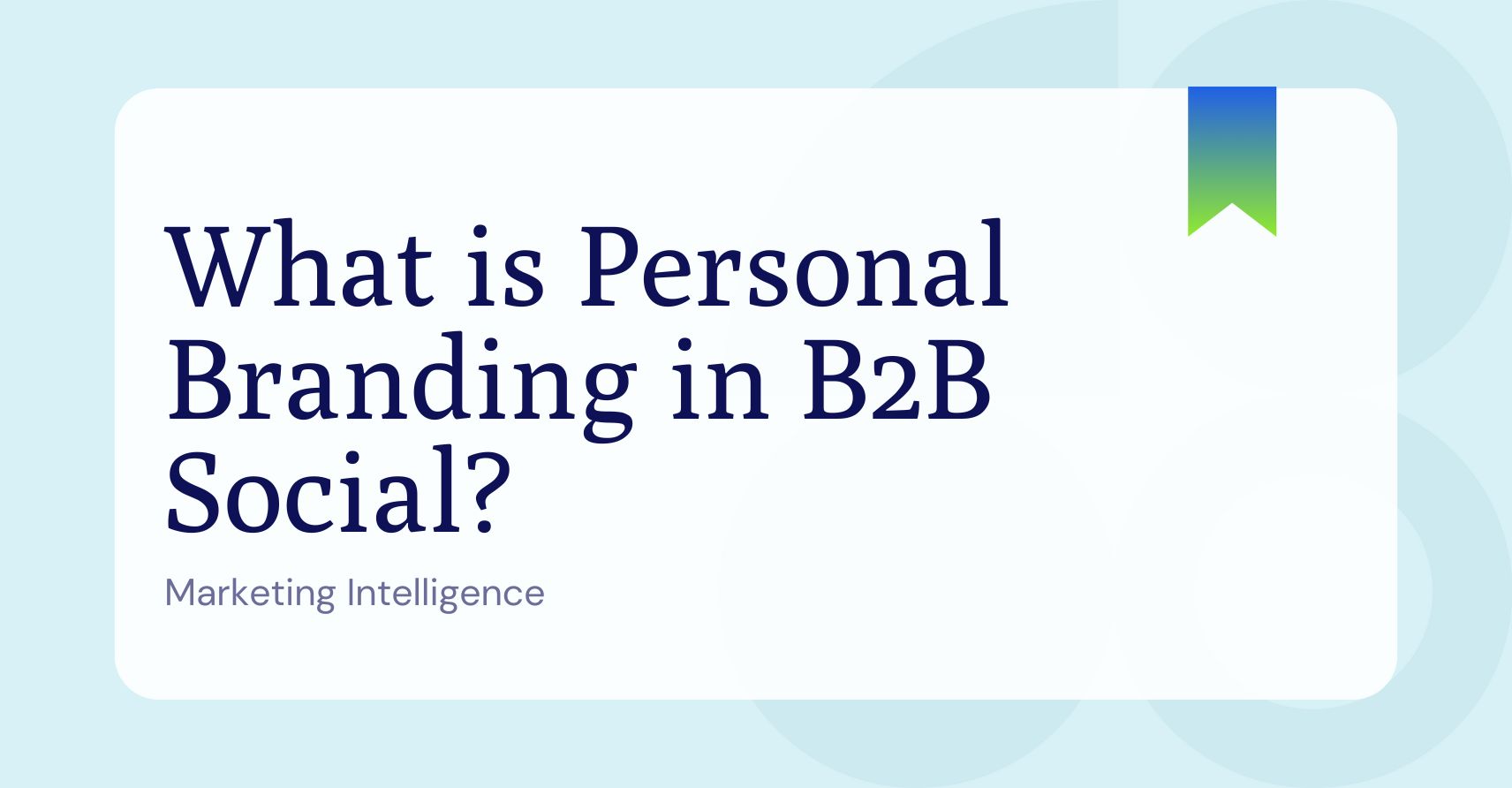Personal branding in B2B social media refers to how professionals position themselves on social media, particularly LinkedIn, to build credibility, share expertise, and foster authentic relationships within their industry. It's not about self-promotion. It's about showing up consistently with value, insight, and personality.
For marketing and social media managers, personal branding can be a force multiplier. It helps humanize your company's presence, increases trust in your voice, and makes your social content more relatable and shareable.
Why does personal branding matter in B2B social?
In B2B, trust is everything. People trust people more than logos. When professionals post from their profiles, content often performs better than brand posts. Why? Because it feels more real.
Here's why it matters:
-
It builds thought leadership: Posting expert insights helps position you as a go-to resource.
-
It earns engagement: Audiences are more likely to comment, share, and message a person than a brand.
-
It expands reach: Social algorithms favor personal profiles, giving your content more exposure.
-
It drives influence: Over time, your name becomes associated with your niche or specialty.
Executives, marketers, and sellers alike are realizing that strong personal brands play a crucial role in driving meaningful B2B conversations.
How can marketers build a strong personal brand on social?
You don't need a huge following to start. What matters most is showing up with purpose. Here's how marketing and social media managers can begin:
-
Polish your profile: On LinkedIn, use a professional photo, craft a clear headline, and add a summary that reflects your expertise and its value.
-
Post consistently: Share insights, wins, reflections, or industry takes once or twice a week.
-
Engage thoughtfully: Comment on others'posts, reply to comments on yours, and join relevant conversations.
-
Show your work: Share lessons from your campaigns, new tools you're testing, or content strategies that worked.
-
Be human: Mix in your personality. A bit of humor, curiosity, or vulnerability makes your posts more relatable.
The best personal brands don't look like marketing. They appear to be genuine individuals sharing valuable insights.
What are the key ingredients of an effective B2B social branding strategy?
A solid personal branding strategy isn't accidental. It combines structure with authenticity. Key ingredients include:
-
Clarity: Know your themes. Are you focused on B2B social strategy, content performance, or executive communications?
-
Voice: Develop a tone that feels natural to you, whether it's sharp, reflective, bold, or witty.
-
Value-first content: Lead with insights, not sales pitches.
-
Visual consistency: Use similar imagery, post templates, or headshots to maintain recognizable branding.
-
Audience alignment: Speak to your peers, marketing and social media professionals seeking relevant, actionable insights.
Even ten minutes a week can make a difference if your content helps your network improve at what they do.
How does personal branding on social impact trust, engagement, and lead generation?
Here's where the magic happens, when personal branding turns attention into business impact:
-
Trust: People engage more with individuals they recognize and trust.
-
Engagement: Posts from real people consistently outperform brand content in comments, likes, and shares.
-
Lead generation: When buyers research solutions, a familiar face often wins the first click or reply.
According to Vista Social, employee posts generate eight times more engagement than branded posts and significantly increase brand trust.
Your social presence can serve as a gentle entry point to more in-depth buyer conversations without ever running an ad.
What mistakes should marketers avoid when building a personal brand on B2B social?
Avoiding these common pitfalls can keep your brand strong and sustainable:
-
Being overly promotional: If every post is a pitch, your audience will tune out.
-
Inactivity: Long silences break momentum. A weekly rhythm works wonders.
-
Inauthenticity: Copying someone else's voice or content style can feel hollow.
-
Ignoring feedback: Engagement is a two-way street. Respond and acknowledge it.
-
Lack of direction: Random posts with no theme can dilute your brand.
Personal branding is most effective when tailored to the individual. Let your voice lead.
How do employee advocacy and executive visibility support personal branding?
Personal branding doesn't exist in a vacuum. When more employees or executives build personal brands, your whole company benefits:
-
Amplified reach: Employee posts broaden your brand's organic visibility.
-
Collective authority: Thought leadership from across departments adds credibility.
-
Recruitment and retention: Strong personal brands reflect a company culture that encourages individual growth.
According to BlueText, employee advocacy isn't just for sales. It's a full-funnel, full-team opportunity that starts with personal branding.
Final thoughts
Personal branding in B2B social isn't optional anymore. It's essential. It's one of the few areas where marketing and social media managers can build influence, elevate their careers, and contribute directly to business growth, all without needing a budget.
When done well, your brand makes your expertise visible, your content more impactful, and your presence unforgettable.
